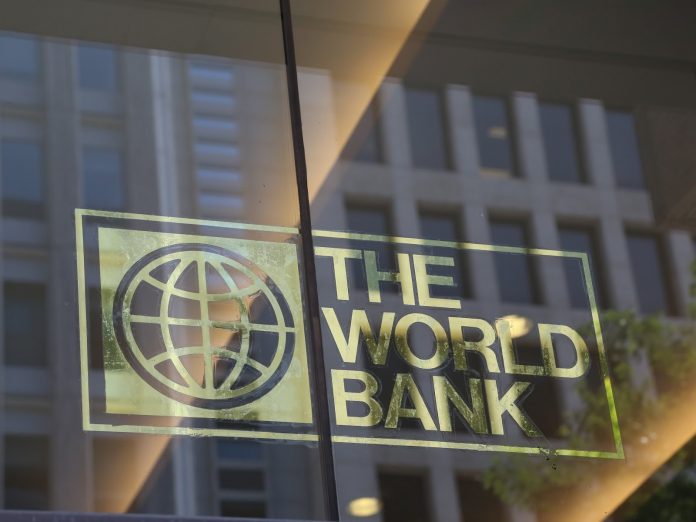Islamabad: World Bank released its twice-a-year South Asia Economic Focus report on Monday stating it expects Pakistan’s economy to grow at over 5pc.
In Pakistan, economic growth is expected to accelerate to more than 5 percent this and the next year provided country’s fiscal deficits remain well managed and external stability is maintained. Efforts to reverse the trade and fiscal imbalances and continued implementation of reforms will be needed for sustaining and accelerating growth and improving welfare.
After having led global growth for over two years, South Asia has stalled and fallen to second place, after East Asia and the Pacific region. The slowness in growth has been attributed to temporary shocks and longer-term challenges, said the report.
The reasons for the slowdown in growth, especially in India have taken place due to internal factors such as fall in private investment, increase in exports and government spending.
WB, South Asia Region Vice President Annette Dixon said “While growth rates in South Asia largely remain robust given the economic shocks that some countries in the region have faced, countries should continue to actively address their growing trade and fiscal deficits. With the right mix of policies to respond to challenges, we remain confident that South Asian countries can accelerate their growth to create more opportunities and prosperity for their people.”
South Asia’s growth will fall to 6.9pc during 2017 from 7.8pc in 2016, and will rise again to 7.1pc by 2017 provided the right policies and reforms are undertaken.
Highlighting South Asia was once at the cutting edge of economic measures and analysis, usage of pioneering techniques which included the use of household surveys, the report stated. Also, the rise in usage of big data could assist in improvement of economic measurement in South Asia.
“We’re very excited about the potential of adopting new sources of data to improve our understanding of economic activity. Nightlight data, for instance, is easy to obtain, regularly updated, and very informative,” said World Bank South Asia Region Chief Economist Martin Rama. “In this report, it allows us to shed light on recent episodes and to provide a new perspective on how policies and shocks impacted the region, down to the local level.”
Afghanistan’s economic recovery remains slow with continuing insecurity curbing private investment and consumer demand. Growth is projected to accelerate slightly from 2.6 percent in 2017 to 3.4 percent in 2018. However, with population growth of nearly 3 percent, such a level of economic growth means minimal income per capita growth. Sustained economic growth requires transforming the economy through better health and education, improved agriculture, and the development of the country’s mining resources.
The economy in Bangladesh remains strong with accelerating industrial production and resilient services. However, growth is expected to moderate this year. Deficits are widening as export growth and remittances have weakened, which should be monitored and addressed along with increasing stresses on the financial sector and uncertainties around the upcoming elections.
Economic activity in Bhutan has kept growth strong with the economy expected to grow at 6.7 percent in 2017 and 6.9 percent in 2018. Hydropower projects, supportive policies combined with low inflation, a stable exchange rate and greater financial reserves have contributed to growth and poverty reduction. However, risks are emerging, including possible delays in hydropower construction and the slowdown in growth in India.
India’s economic momentum has been affected from disruptions from the withdrawal of banknotes and uncertainties around the GST. Growth is expected to slow from 8.6 percent in 2015 to 7.0 percent in 2017. Sound policies around balancing public spending with private investment could accelerate growth to 7.3 percent by 2018. While sustained growth is expected to translate to continued poverty reduction, more focus could be made to help benefit the informal economy more.
In Maldives, GDP growth has rebounded to nearly 5 percent as the government embarks on several major infrastructure projects to help move Maldivians to the capital city Malé. Construction is expected to be a key driver of growth, with tourism also recovering. The country could better align economic activity with providing more employment opportunities, and better health as well as education services. In addition, it needs to prepare for the impacts of climate change.
Nepal has seen an impressive economic recovery after disruptions from earthquakes and a trade blockade. Economic activity rebounded to 7.5 percent in 2017 through increasing government resources, spending, and remittances from abroad. Growth is expected to slow in 2018 due to the heaviest floods in decades, slow recovery of exports, and an increase in lending rates.
Sri Lanka’s economic growth is projected to grow at 4.6 percent in 2017 and achieve 5 percent growth in the years ahead. Public finances and reserves have improved despite a high budget deficit and public debt. Frequent natural disasters continue to weaken economic performance and are likely to increase poverty. Accelerating reforms to promote competitiveness, better governance, and a more balanced budget are critical to ensure sustained growth and development.




































We can give a big surprise to the World Bank and even Islamise it for the benefit of world economy.
Allah Ta’ala has taught us that it is He who controls the world’s “Maeeshat.” He distributes the money to the people and has made some people to work for others. Allah Ta’ala abolished “Riba” (Usury) from His “Maeeshat” unto the end of the world. H instituted in its place verse 2 / 26. In it He has told in a parable that “those who spend on (welfare) in Allah’s sake, it is like a grain, out of which grow swven ears, each with 100 grains, and He increases even on this; He is vast with His grace and Knowing (needs of the mankind.” It translates into 700 times. &0,000 per cent. Islam will continue being discovered unto the end time. He has also created 7 earths (worlds) including ours.. Let us create an independent Think Tannk and find working of this economy starting from Pakistan.1